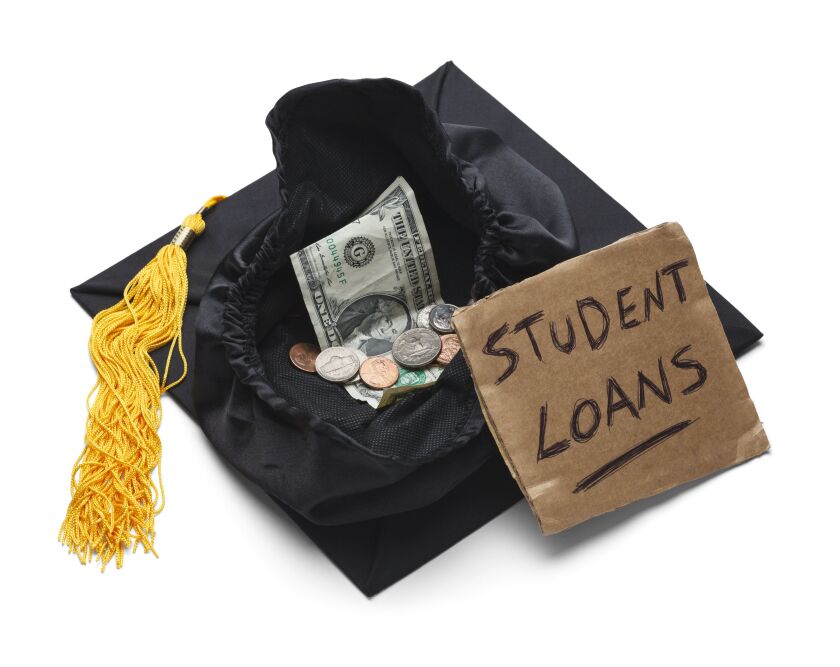Refinancing saved one borrower $125 a month. A federal forgiveness program wiped $5,000 off another’s balance. A third went all-in on extra payments.
Here’s how three people are crushing their student loans and what you can learn from their approaches.
The borrowers
The technology specialist: In 2015, Emily Ball graduated with about $70,000 in student loans and an education degree – after realizing too late that she didn’t actually want to be a teacher. The Dallas resident took a human resources job, but that wasn’t the right fit, either. She flitted among other gigs – bartending, dog walking, video editing – before finally finding a role she’s excited about. As a digital services specialist at PSAV, a global event production company, she travels the country providing technical support at conventions.
The podcaster: Katie Welsh graduated in 2010 with about $30,000 in student loans. While teaching elementary school in Tampa, Florida, she alternated between making minimum payments and deferring payments. Meanwhile interest continued accruing, increasing her balance by thousands. She began tackling her debt aggressively after moving to Arlington, Virginia, with her boyfriend, Denis, an accountant. The couple documents Welsh’s debt payoff experience with their podcast, Chain of Wealth.
The lawyer:Joshua Goldstein had six figures in student loan debt when he graduated law school in 1997 and estimates the balance reached almost $170,000 with interest. While building his career as an immigration lawyer, he limited his spending so he could pay extra on his loans. “You’re not going to pay off $170,000 by making your own lunch,” the Los Angeles resident says.
The payoff strategies
Refinancing: Ball, the technology specialist, refinanced about $64,000 in private student loans in March 2018. The move lowered her interest rate from about 10 percent to 7.5 percent, saving her about $125 a month.
The additional cash helped Ball pay down credit-card debt and get a place with her boyfriend instead of living with three roommates. Refinancing also released her parents as co-signers on her debt.
Forgiveness and side hustles:Welsh, the podcaster, got $5,000 forgiven through the federal Teacher Loan Forgiveness program, which requires borrowers work full time in a low-income school for five years. She also makes money from podcasting, freelance writing and Airbnb hosting and puts the extra cash toward her student debt. She has about $25,000 remaining and plans to use her salary this year to pay it off while her boyfriend covers living expenses.
Extra payments: Goldstein, the lawyer, made larger-than-minimum payments to slash interest and pay off his student loans faster. He put off owning a car, buying a home and contributing to a 401(k) – even as he started earning more.
“It was just sort of a psychological thing,” he says. “I wanted it to be gone.”
Eventually, it was. Goldstein estimates he became debt-free in 2004.
It’s not news that college has gotten pricy, leading a lot of people to take out loans. Buzz60
The advice
Get your finances in order before refinancing:At first, student loan refinancing lenders rejected Ball because her income wasn’t high enough, she says. If you’re wondering whether you can refinance student loans, make sure you have:
- Enough income to comfortably cover expenses and debt payments.
- A good credit score – in the high 600s, at least.
Avoid deferring student loans: Welsh postponed payments on her student loans by putting them in deferment. But deferment – and forbearance, which is similar – is costly. Interest accrues even when you aren’t making payments and is added to the principal balance when repayment begins. In other words, you’ll pay interest on top of interest.
If you’re struggling to afford monthly payments, switch to a federal income-driven repayment plan instead.
Make extra payments the right way: Goldstein made minimum payments on all of his loans and paid extra on the high-interest ones – that’s the best way to maximize additional payments. Instruct your loan servicer to apply overpayments to the loan balance instead of the next month’s payment.
In hindsight, Goldstein says he could have chosen a less-expensive school.
“No one has ever asked me where I went to law school,” says Goldstein, who attended Boston University School of Law. “Paying a premium for a degree may not be a financially prudent decision.”







